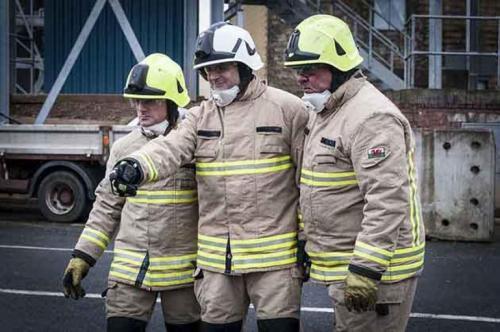Crew Resource Management and Confirmation Bias
Although equipment, procedures and techniques are important in vehicle extrication, the most critical piece of the jigsaw and the glue that holds everything together is the people involved in performing the task. Of course it therefore follows that, by definition, the human element can also prove to be the weakest link and have the biggest impact on success or failure.
I have always been fascinated by the human factors involved in the successful resolution of emergency situations and I firmly believe that this is something that crews should explore in more detail from an educational point of view; make it part of your training and preparation. We generally excel at techniques but how good is our communication, interaction and understanding of each other?
Challenge your colleagues
Crew resource management is a concept that has been around for nearly four decades and has its origins in industries where human error can have devastating consequences such as medicine or aviation. These industries have invested heavily in training personnel in this area with great results. In the 1970’s several high profile aircraft disasters found that there was a culture of junior aircrew (first officers) not challenging the decisions and actions of pilots (captains) with dire consequences. In essence they knew that decisions were wrong, but the culture dictated that they did not question their senior colleagues. Thankfully the world has moved on but elements of this still remain in many industries. Do you challenge your senior colleagues? Are you allowed to? Are you encouraged to?

Do you feel the liberty to challenge your (senior) colleagues?
Confirmation bias
There are many concepts involved in the study of crew resource management but a very relevant one (and one I witness quite often in my role as an educator) is confirmation bias. This can be defined as the human tendency to actively seek and prefer information that fits perfectly with your intuition or previous experiences. Put simply, you see and hear what you want to see and hear in order to satisfy your suspicions and make decisions. As you can imagine, such behaviour can lead to negative outcomes. When I think back to my own operational career I am 100% sure that confirmation bias has formed my decision making process in the past. In my defence; back then I didn’t know what I didn’t know.

As a human being we have the tendency to seek information that matches our ideas or former experiences.
A practical example
Let’s keep in mind that vehicle extrication training, like most other training for emergency response, is largely based on repetition (it is getting better however, as when I joined the Fire Service 25 years ago, training was still called drill). We tend to follow the same patterns, you
Another example
Operationally there is still a desire (in many countries) to focus on immediate and complete spinal immobilisation when we arrive at the scene of a vehicle collision which, let’s be honest, dictates the rest of your extrication plan and limits your options. This is a prime example of confirmation bias; we read the kinematics and automatically presume spinal injuries. Yet even the most extreme mechanism of injury may not require such actions (see my blog 63 for example) and therefore provide a wider range of options for extrication. Immediate spinal immobilisation still happens, daily. Is it the best course of action for that patient or do we need to suspend our preconceived ideas?
Summary
Knowing that crew resource management and confirmation bias is a ‘thing’ is immensely useful and this will allow you to more effectively assist your crews become better at what they do. It has greatly assisted me as an educator. We should always look at operational situations and try to understand how we make our decisions. We should know that it is ok to challenge decision making (in a structured and constructive way) no matter where we are in the hierarchy. More critically, maybe we should ‘mix up’ our training, i.e. not follow repetitive themes, condition people to expect differing outcomes and not always follow the same script. I would urge you to look more closely at crew resource management and see how some of the associated fascinating concepts impact on your role.
As ever I welcome your comments!
Ian Dunbar